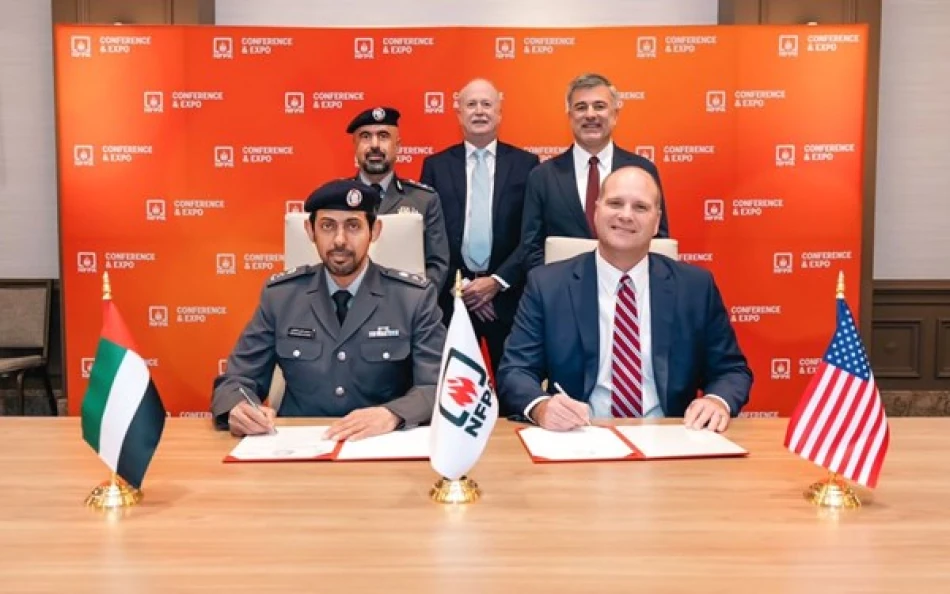
Abu Dhabi Civil Defense and National Fire Protection Association Join Forces for Enhanced Safety
Abu Dhabi Partners with US Fire Protection Authority to Build World-Class Safety Infrastructure
Abu Dhabi Civil Defence Authority has announced a strategic partnership with the US National Fire Protection Association (NFPA) to develop a comprehensive fire prevention system that could position the emirate as a global leader in urban safety standards. This collaboration represents a significant shift toward proactive risk management in one of the world's fastest-growing metropolitan areas.
Strategic Vision Behind the Partnership
The initiative aims to establish Abu Dhabi as a premier global model for fire safety and prevention, leveraging internationally recognized NFPA standards that are widely adopted across major US cities and industrial centers. This move aligns with the UAE's broader strategy of adopting best-in-class international frameworks to enhance its competitive positioning.
Brigadier Salem Abdullah bin Barak Al Dhaheri, Director General of Abu Dhabi Civil Defence Authority, emphasized that the project represents a future-focused approach to anticipating risks and developing innovative preventive solutions. The strategy positions Abu Dhabi to compete with other safety-conscious global cities like Singapore, which has similarly invested heavily in comprehensive urban safety systems.
Technical and Infrastructure Implications
Comprehensive Prevention Framework
Lieutenant Colonel Dr. Mohammed Nasser Al Harthi, the project director, described the initiative as a qualitative leap in fire prevention across the emirate. The system will focus on developing sustainable preventive infrastructure, ensuring facility readiness, and raising community awareness according to global best practices.
This approach mirrors successful implementations in cities like New York and Los Angeles, where NFPA standards have been instrumental in reducing fire-related casualties and property damage over decades. The partnership suggests Abu Dhabi is prioritizing long-term infrastructure resilience over short-term cost considerations.
Economic and Investment Perspective
For investors and businesses operating in Abu Dhabi, this development signals several important trends. Enhanced safety standards typically correlate with reduced insurance premiums and lower operational risks, making the emirate more attractive for international corporations and real estate developers.
The move also reflects Abu Dhabi's commitment to maintaining its competitive edge against other regional business hubs like Dubai and Doha, where safety infrastructure increasingly influences corporate location decisions. Companies in high-risk sectors such as petrochemicals, manufacturing, and logistics are likely to view this initiative favorably when evaluating regional expansion plans.
Regional Leadership in Safety Standards
This partnership positions Abu Dhabi ahead of many regional competitors in adopting internationally recognized safety protocols. While neighboring emirates and Gulf states have made significant infrastructure investments, few have pursued such comprehensive partnerships with established US safety organizations.
The collaboration with NFPA—an organization that has shaped fire safety standards across North America for over a century—demonstrates Abu Dhabi's willingness to invest in proven methodologies rather than developing proprietary systems. This pragmatic approach could accelerate implementation timelines and ensure compatibility with international business practices.
The initiative represents more than technical upgrades; it signals Abu Dhabi's evolution toward a mature, risk-aware urban governance model that prioritizes long-term sustainability over rapid development. As the emirate continues diversifying its economy beyond oil revenues, such infrastructure investments become critical for attracting knowledge-based industries and maintaining its position as a preferred destination for international business.
Most Viewed News

 Layla Al Mansoori
Layla Al Mansoori






